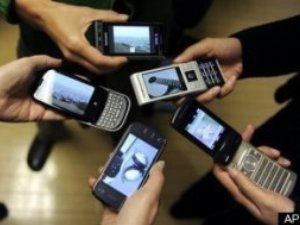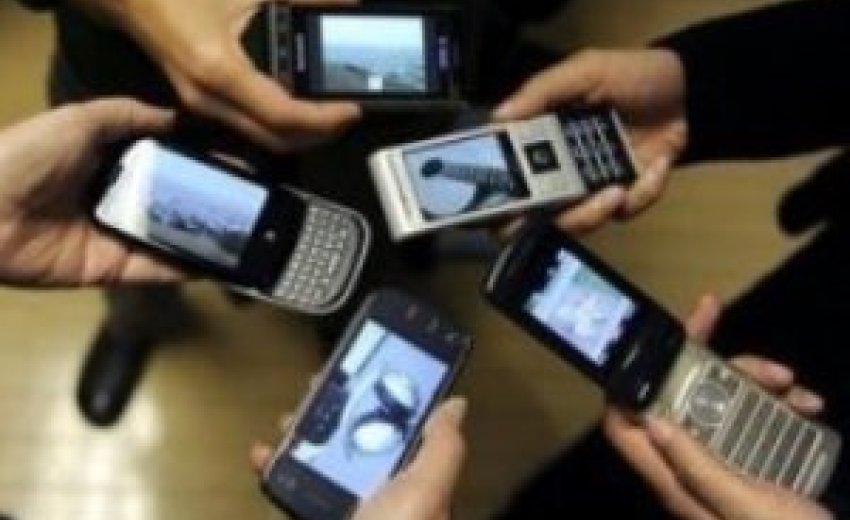 |
Hello, our names are Ellen and Arianna, and we are PDA-aholics. No, we're not addicted to public displays of affection (as nice as they may be). We're addicted to our personal digital assistants -- our iPhones and BlackBerrys, and all the other digital devices we can't live without (iPods and laptops and Kindles, etc.). Thankfully, we're both on the road to recovery.
Ellen's story:
I first realized I had a serious problem during a family vacation in Key West last February. At breakfast, at lunch, at dinner, even at the pool, I was never untethered. I was even on it during our Everglades tour, as my husband, my kids, and I stood a few feet away from about 20 alligators -- at least I think they were alligators. What's the difference between an alligator and a crocodile, anyway? Hey, let me Google that for us right now! My husband told me that he was going to throw it (and my laptop!) into the swamp. Or me.
Between my BlackBerry, my laptop, my iPod and oh, yeah, the TV too, I literally don't have a single "unplugged" moment all day. And boy do I feel wired -- and not in a good way!
Arianna's story:
My "aha moment" also came on vacation. It happened a few years ago, as I stepped off a tender to board a friend's boat anchored off the coast of Cannes. My BlackBerry was tucked into my shoulder bag. A shoulder bag with a small snap. A small snap that came open. A soft splash drew my attention. And I watched my BlackBerry sink into the sea. The finality was absolute. It wasn't as if I'd misplaced it and, after tacking up fliers and putting out a household-wide APB (All Pursue BlackBerry), would eventually track it down. Sure I had closure, but closure of the worst kind.
The only good to come from the loss was that it finally brought me face-to-face with my addiction--the reality brought home by the response of my friends, who all suddenly started treating me as if I'd suffered a major loss. And that's when it hit me: If my friends assumed that losing a small electronic device would devastate me, I must really have it bad. So I cut back from having three PDAs to two (you gotta start somewhere) and began dedicating myself to the idea that the best way to reconnect with myself is to regularly disconnect from our always-on world.
We realize that this is a widespread malady. Consider these stats:
If all this sounds like addiction, well, it probably is. In a new study, college students who went 24 hours without using any media -- no cell phone, iPod, TV, etc. -- then blogged about their experience, using terms of addiction to describe their feelings: in withdrawal, frantically craving, miserable, jittery, crazy.
And it has the same effect as an addiction when we feed it as well: We crave it, so we give in, but it doesn't make us feel good. For most of us, being wired all the time has totally stressed us out. We can't relax, and the result of all that stress -- particularly for women -- is:
And let's not forget the other troubles we're dealing with from being so plugged in all the time. Got neck and shoulder pain from all that texting? Check. How about BlackBerry thumb? Check. Done any texting while driving lately, and had an accident (or a near miss?) In fact, you're 23 times more likely to cause an accident when driving while texting.
The Health Magazine/Huffington Post Challenge
It's time to stop the madness. We at Health magazine and HuffPost Living want to help you de-stress, relax, and get your life back under control. It's time for us all to Unplug and Recharge.
Here's what we would like you to try: This month, we want you to spend 30 minutes a day doing something off the electronic grid: It can be 30 minutes all at once, or 30 minutes split into small chunks over the course of your waking hours. Ellen is going to use her 30 minutes to walk her dog in the park (no iPod on!). Arianna is going stick to the "no BlackBerrys during meals" promise she made to her daughters.
We'll give you all kinds of support to help you unplug and recharge: We've got easy meditation and other relaxation tricks, blogger experts who can help you develop a better work/life balance, and a diet and exercise plan that will get you off the computer and into the fresh air so you can clear your head and get into shape.
Think of it: After a slight withdrawal jitter or two, you may feel an incredible rush of freedom. That's when you'll finally feel ready to recharge -- and have more time and energy for what's really important: family, friends, and reconnecting with yourself.
